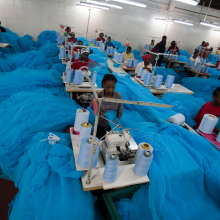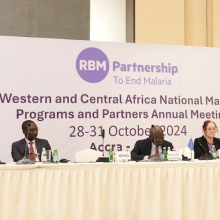Earlier this month, researchers at the Imperial College London reported a major breakthrough: in lab trials, they succeeded—for the first time—in eliminating the population of malaria-carrying mosquitos using the gene drive technology in less than 11 generations.
These results hold great promise for our malaria control and elimination efforts in the future—even though any tests involving gene drive mosquitos in the wild are still a few years away.
Gene drive is a genetic phenomenon that occurs in nature and causes a selected trait to spread rapidly through a species via sexual reproduction over several generations. Gene drive works by increasing the likelihood that a modified gene will be inherited by its offspring.
Normally, genes have a 50/50 chance of being inherited, but gene drive systems could increase that chance to upwards of 99 percent. This means that over the course of several generations, a selected trait could become increasingly common within a specific species.
Already being explored for possible applications such as control of invasive species on islands, gene drive is increasingly talked about in the context of vector-borne diseases, which claim 700,000 lives each year, most of them from malaria.
In order to harness this possibly game-changing technology, and fully understand both risks and benefits associated with it, further research is essential. With this in mind, the newly-formed Outreach Network for Gene Drive Research, which includes several RBM Partners, seeks to raise awareness of the value of gene drive research for the public good.
Just like with other innovations, informed decision-making and broad buy-in are critical to their success. Talking at the launch of the RBM Partnership in 1998 about the then-distant prospect of a malaria vaccine, WHO Director-General Gro Harlem Brundtland stated: “We need to be there to take immediate advantage of scientific advances as they see the day.” As we celebrate RBM’s 20th anniversary later this month, her words ring just as true today.
Latest Blogs


